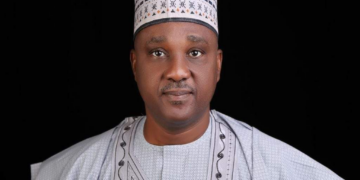The federal government has dominated the bond market, raising N2.769 trillion in eight months, with corporate listings accounting for a significantly lower N43.2 billion value.
This substantial difference highlights the government’s reliance on the bond market to finance its activities. The strong demand for government bonds is driven by attractive yields and Nigeria’s stable credit ratings, making them a safer investment option amid broader market uncertainties.
Bonds are debt securities that represent loans from investors to a borrower, such as a corporation or government, which receives capital in exchange for a promise to repay the principal amount (the original loan) on a specified maturity date and to make periodic interest payments, known as coupons, until then. They are a fixed-income investment, meaning they provide a predetermined rate of return over time.
FGN Bonds issued by the Debt Management Office (DMO) on behalf of the federal government are listed on the NGX floor.
A total of N3.201 trillion new listings were recorded on the NGX during the period, and the federal government was responsible for 86.50 per cent, amounting to N2.769 trillion, while Dangote Cement listed N38.199 billion, and TSL SPV Plc listed N5 billion.
Finance analysts attributed the strong demand for FGN bonds to attractive yields, which offer investors high returns on their investments, stressing that the oversubscription also revealed that investors have confidence in the federal government’s ability to meet its debt obligations.
The appetite for FGN bonds indicates that the Pension Fund Administrations(PFAs) and Nigerian investors prefer investment instruments with less volatility that assure them of their capital returns, albeit with low yield on investment.
The government, under President Bola Tinubu, aims to harness the vast potential of the private sector while undertaking extensive infrastructure projects to elevate the country’s GDP to $1 trillion by 2030. This ambitious goal includes a plan to quadruple the economy within the next five years, emphasising economic diplomacy as a cornerstone of its strategy.
Also, stockbrokers recently called on the federal government to initiate urgent economic reforms aimed at repositioning the Nigerian capital market as a key driver in achieving the country’s $1 trillion economy target.
Speaking at the Capital Market Committee (CMC) meeting, the minister of Finance and coordinating minister of the Economy, Wale Edun, who was represented by minister of State for Finance, Dr. Doris Uzoka-Anite, highlighted the market’s transformation since 2015, with improvements in governance structures, new products and platforms, a stronger regulatory environment, and growing investor participation.
According to the minister, implementing the Capital Market Master Plan (2015-2025) has been instrumental in increasing the market’s contribution to the national economy, developing a sophisticated market structure, and improving competitiveness.
Edun said the revised plan prioritises digitalisation, innovation, sustainability, inclusion, and capital formation, aligning with the broader economic reform agenda.
He said the passage of the new act modernises the legal and regulatory framework, streamlines enforcement mechanisms, and provides clarity on emerging areas such as digital assets and crowdfunding.
Registrar and chief executive, Chartered Institute of Stockbrokers (CIS), Oluropo Dada and Ayorinde Adeonipekun respectively, stated that, “the federal government must lead strategic coordination among market stakeholders to harmonise fiscal, trade, and monetary policies aimed at boosting investor confidence and attracting long-term capital.
“Foreign Direct Investment (FDI) inflows remain volatile and below potential due to concerns around currency risk, regulatory unpredictability, and infrastructure gaps. Domestic capital mobilisation through pensions, insurance, and retail investor engagement remains underutilised for industrial financing. A vibrant capital market is essential to support industrialisation, infrastructure development, and inclusive economic growth.”
According to them, the federal government should ensure effective coordination of market stakeholders to enhance fiscal, trade, and monetary policy implementation to boost investor confidence and attract long-term capital. “There is a compelling need to sustain transparent policies for a unified FX system that improves liquidity and enhances the ability of foreign investors to repatriate capital seamlessly.
“Government should prioritise infrastructure development through public-private partnerships (PPPs). Nigeria is in dire need of a national savings strategy to mobilise local savings and channel them into productive sectors, particularly manufacturing and technology. For enhanced efficiency, regulatory approvals should be streamlined to promote innovation, such as fintech integration,” they pointed out.
On FGN bonds, the vice president of Highcap Securities Limited, David Adnori, expressed concerns that Nigeria’s rising debt profile could become unsustainable if not appropriately managed.
Adonri noted that new company listings have been low for some years, noting that the market had witnessed more companies delisting than new entrants.
He noted that investor confidence is still low especially in the primary market segment, noting that the ability to form capital has diminished in the market, which is also a major reason why companies delist on the NGX.
He explained that, ‘the major oil companies in Nigeria should be compelled to list on the daily official list of the Exchange as they contributed largely to the nation’s GDP.’
Adnori called on the government to induce the oil companies and other multinational companies by introducing tax holidays and other incentives such as government contracts to make listing attractive to them.











